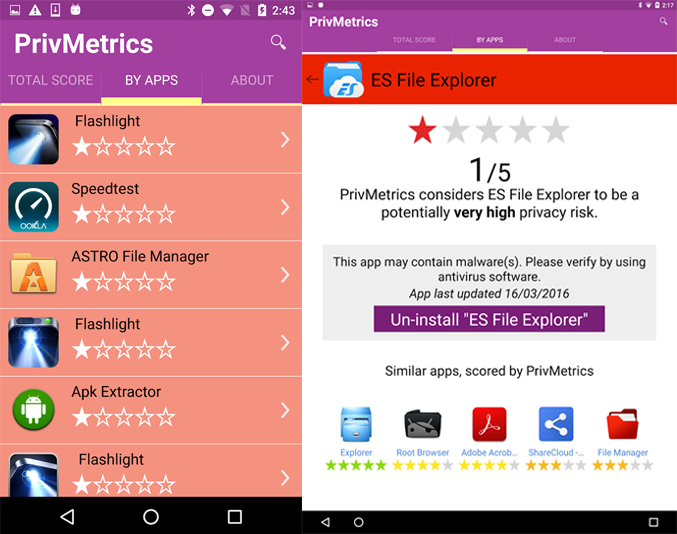
If you are using an Android VPN application, this news interests you. They have released a notice about several of these apps that are working the other way around. Instead of protect your device (data and navigation) have demonstrated security flaws. Chances are high that your cell phone will be 'exposed'. To avoid this, here is a list of these applications and we explain why they malfunction.
A VPN (Virtual Private Network) is a virtual private network that protects your mobile when it connects to the Internet. What it does is encrypt all data traffic between the two devices and establish the connection through that private network. It is useful if you connect to a public Wi-Fi and is also often used, for example, to communicate with the company network from home. In the case of some Android VPN, privacy and security risks have been detected, and some of the apps have been removed from Google Play.
Researchers at CSRIO, a Commowealth scientific organization, have researched 200+ Android VPN apps and they have reached critical conclusions. These are some of the most revealing.
Security flaws in Android VPN apps
The reliability of these applications has been compromised and can affect millions of users, according to the researchers. The most serious faults they have detected are that 18% of VPN apps don't encrypt traffic not at all, that 84% of user traffic is lost or that 38% reveal a malware or malvertising presence.
Another important aspect is that more than 80% request confidential data such as user accounts and text messages, when that is not necessary. In addition, less than 1% of VPN apps reviewed warn of potential security or privacy when they appear.
All this means that 4 out of 5 Android VPN apps ask for confidential permissions, 4 out of 5 contain malware, 2 out of 5 don't even encrypt the information like they should. In fact, they can facilitate access to those who are dedicated to "stealing" them to sell to third parties.
Android VPN apps to avoid
Fortunately, the study has published a list of those VPN apps for Android to avoid. Some of them have already been removed from the Google Play Store. Here you have the complete list.
- OkVpn - removed
- EasyVpn - removed
- SuperVPN - removed
- HatVPN - removed
- SFly Network Booster - removed
Betternet - CrossVpn
- ArchieVPN
- One click
- FastSecurePayment
The apps on the list got the worst score in a test that proves their strength against 5 different types of malware: Adware, Trojan, Malvertising, Riskware and Spyware. All apps excluding SuperVPN had a Play Store rating of 4.0 or higher at the time the research was published.
How to find a reliable VPN
This news makes us suspicious of Android VPN applications, although it is not the case of Surfshark VPN. That is why it is advisable to be attentive when we download and use these types of apps. It's good to go through various VPN options and not use the first one that you come across. It is also essential to read well the permissions requested by the application and avoid those VPNs that request personal data or sending a text message.
If you want to be even more secure, we recommend the PrivMetrics app. It is from the team that has carried out the research and makes an evaluation of all Android applications in terms of security and privacy. An easy way to spot privacy risks and security associated with a smartphone.
The application scans all the apps installed on your mobile and rates them from 0 to 5 stars according to their reliability. It also offers recommendations on applications with similar functionalities, but more secure.
